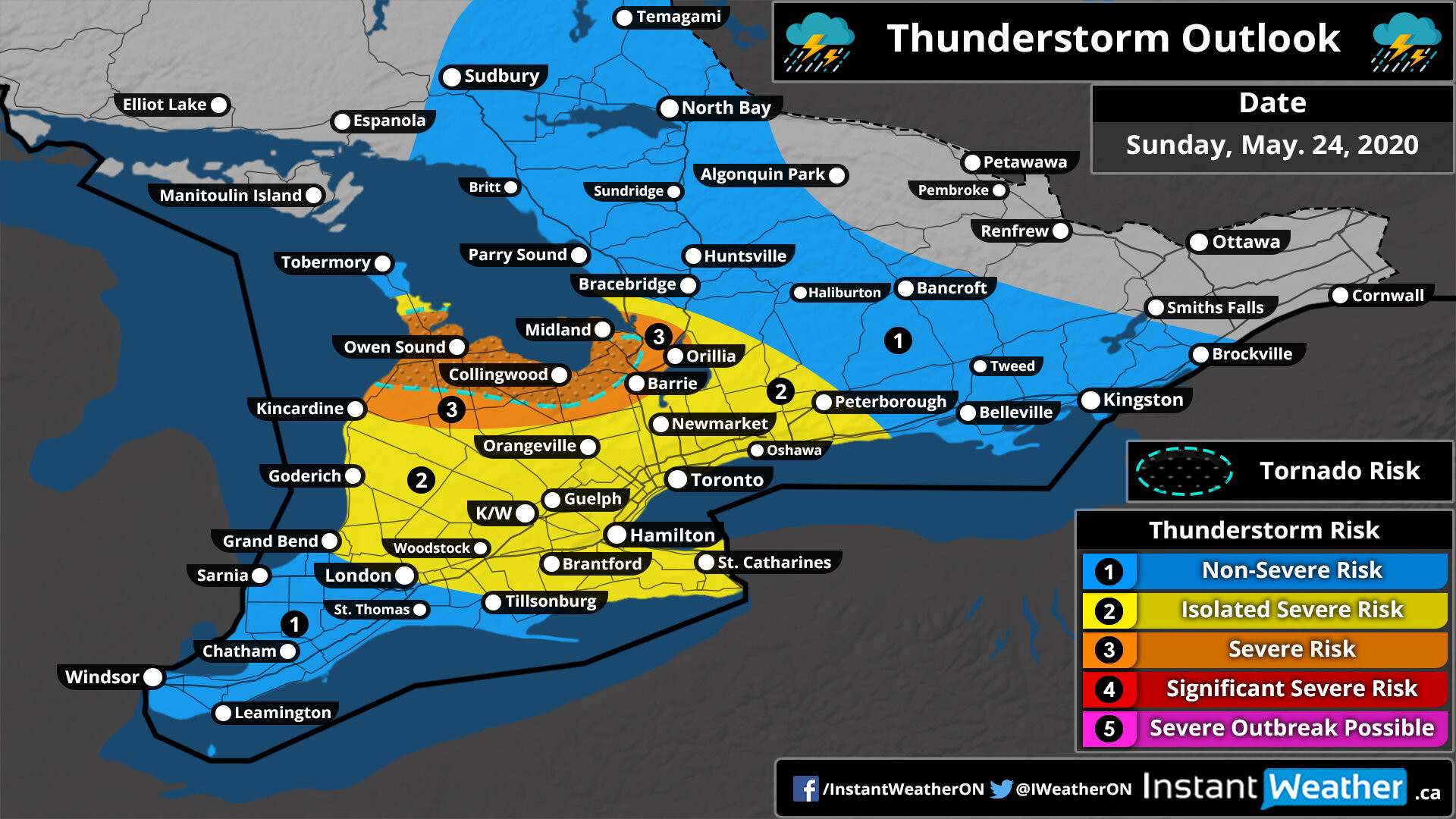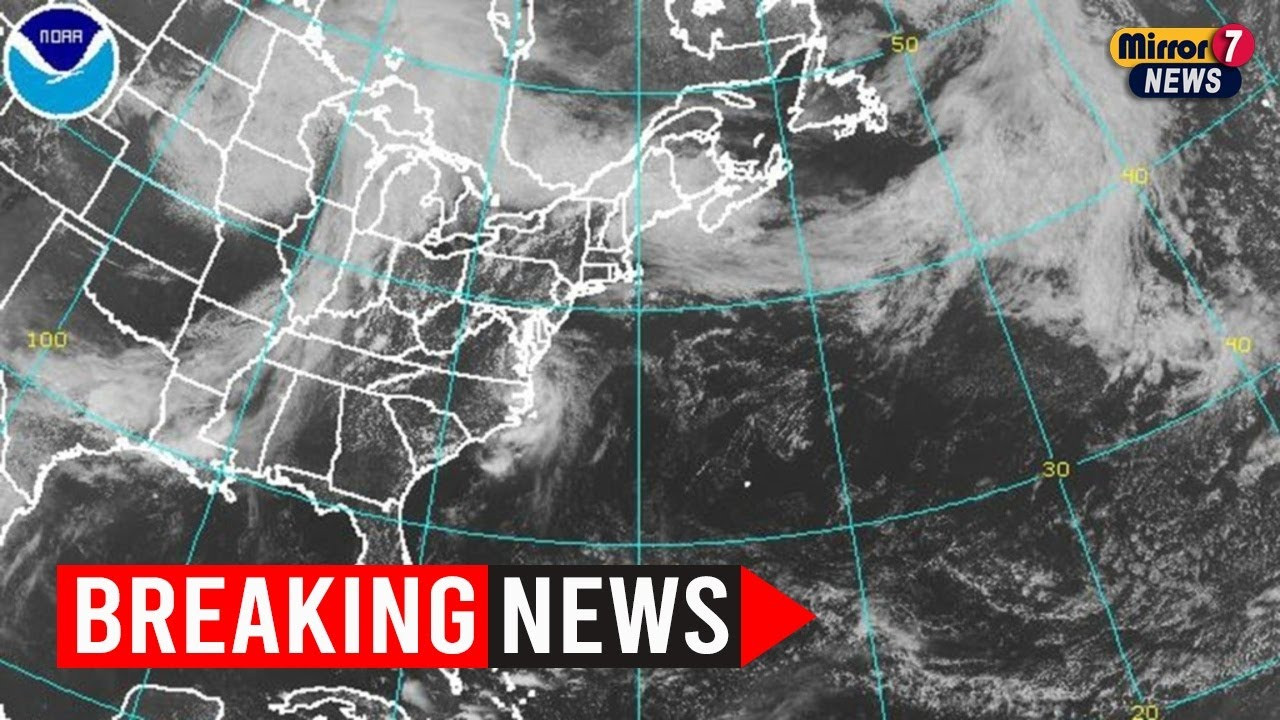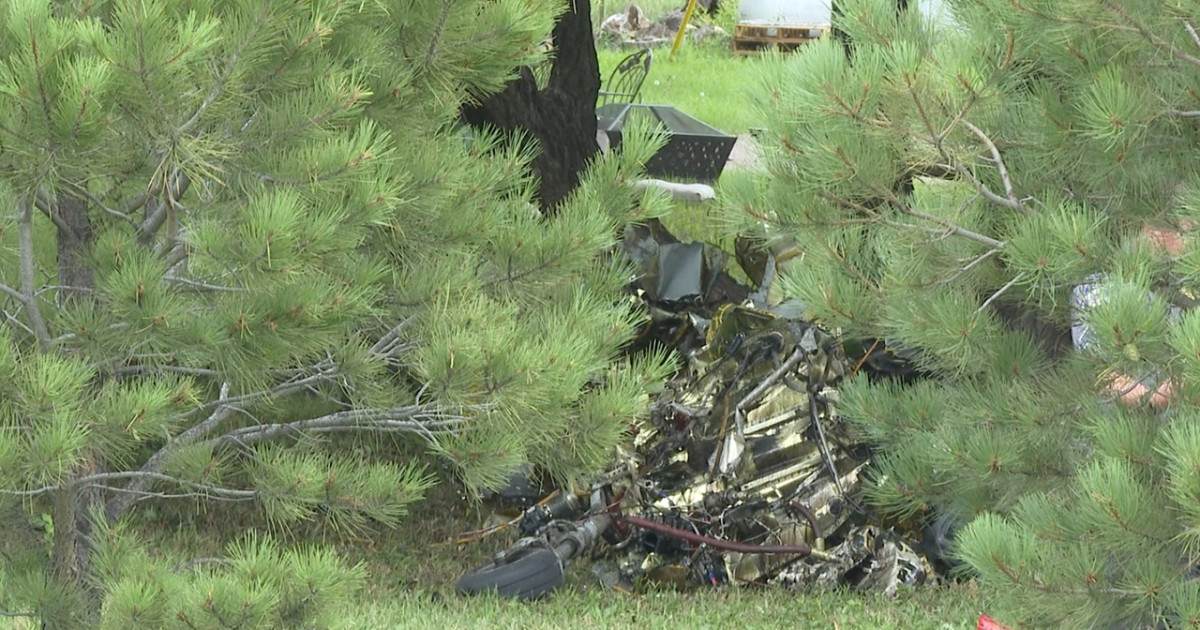Southern Ontario is bracing for a line of severe thunderstorms capable of producing very strong wind gusts and even isolated tornadoes. Environment Canada issued a severe thunderstorm warning for several regions across the province, including the Kitchener-Cambridge-Region of Waterloo area, Halton Hills-Milton, and parts of Perth County.
The storms, moving eastward at 80 km/h, are expected to bring wind gusts reaching up to 90 km/h. These high-speed gusts could damage trees, buildings, and power lines, potentially causing widespread power outages. Emergency officials are urging people to stay vigilant and exercise caution as the powerful winds could even overturn large vehicles on the road.
As the storms approach, remember the safety advice: “When thunder roars, go indoors!” Lightning is a real threat, injuring and killing people each year. In addition, Ontario's emergency management team advises everyone to take cover immediately if the weather turns threatening.
The storm system is expected to move eastward across southern Ontario at a speed of 80 km/h, with the severe weather expected to taper off late this evening. However, the risk of damaging winds, potential tornadoes, and heavy rainfall remains a concern. The threat of severe weather in November is unusual, but it underscores the importance of staying prepared throughout the year.
Power Outage Preparedness
With the potential for strong winds and severe thunderstorms, power outages are a real possibility. Being prepared can help keep you, and your family safer and more comfortable during an outage.
Before an Outage
- Charge your devices: Ensure all your electronic devices, including cell phones, laptops, and tablets, are fully charged. Consider investing in a portable charger for your phone.
- Gather essential supplies: Stock up on essential supplies like flashlights, batteries, candles, first-aid kits, and non-perishable food items. Ensure you have enough water for drinking and cooking.
- Prepare for communication: Have a plan for communication in case of a power outage. Identify a central meeting place for your family and friends, and make sure everyone knows how to contact each other.
During an Outage
- Turn off appliances: Turn off all appliances and electronics to prevent overloading the electrical system once power is restored.
- Use caution with generators: If you use a generator, follow all safety instructions carefully. Never operate a generator indoors, as carbon monoxide poisoning can be fatal. Ensure your generator is properly grounded.
- Check for downed power lines: Stay away from downed power lines, as they are still live and dangerous. Report any downed lines to Hydro One immediately.
After an Outage
- Inspect your appliances: Before plugging in any appliances, make sure they are dry and have not been damaged. If an appliance appears damaged, do not use it and contact a qualified electrician.
- Check your food: Throw out any perishable food items that have been left unrefrigerated for more than two hours.
- Be patient: It may take time for power to be restored. Be patient and cooperate with any instructions from emergency officials.
Staying Safe During Severe Weather
Severe thunderstorms can be dangerous, so it's crucial to take precautions and stay informed about the latest weather alerts. Remember to:
- Monitor weather forecasts and alerts: Stay updated on the latest weather information by listening to local radio stations or checking reliable online weather sources.
- Secure loose objects: Secure any loose objects outdoors that could be blown around by high winds. This includes garden furniture, patio umbrellas, and other items.
- Be prepared for downed trees: Trees can fall during storms. Be aware of your surroundings and avoid walking under large trees.
- Keep a first-aid kit handy: Have a well-stocked first-aid kit readily available in case of any injuries during the storm.
Remember, safety is paramount during severe weather. Follow these precautions and stay informed to ensure your well-being and the safety of your loved ones.
Be Prepared: How to Weather a Power Outage in Thunder Bay and Northwestern Ontario
The upcoming severe weather event has prompted warnings about potential power outages in Thunder Bay and surrounding areas. It is essential to be prepared for the possibility of losing power, as it can happen at any time, especially during stormy weather. Here's what you can do to weather a power outage effectively.
Before the Outage
- Charge Your Devices: Keep all your electronic devices, including phones, tablets, and laptops, fully charged. You might also consider investing in a portable charger for your phone.
- Essential Supplies Checklist: Gather supplies such as flashlights, batteries, candles, first-aid kits, and non-perishable food items. It's also crucial to have enough water for drinking and cooking.
- Create a Communication Plan: Establish a central meeting place for your family and friends. Ensure everyone knows how to reach each other in case of an outage.
During an Outage
- Turn Off Appliances: To prevent overloading the electrical system once power is restored, turn off all appliances and electronics.
- Generator Safety: If using a generator, follow safety instructions diligently. Never operate a generator indoors, as it can lead to carbon monoxide poisoning. Ensure your generator is properly grounded.
- Downed Power Lines: Always stay away from downed power lines, as they are live and dangerous. Report any downed lines to Hydro One immediately.
After an Outage
- Appliance Inspection: Before plugging in any appliances, ensure they are dry and have not been damaged. If an appliance seems damaged, do not use it and contact a qualified electrician.
- Food Safety: Throw out any perishable food items that have been left unrefrigerated for more than two hours.
- Patience is Key: It may take time to restore power. Be patient and cooperate with any instructions from emergency officials.
By taking these steps, you can be better prepared to weather a power outage safely and comfortably. Remember, preparation is key to ensuring your safety and well-being during such events.


















